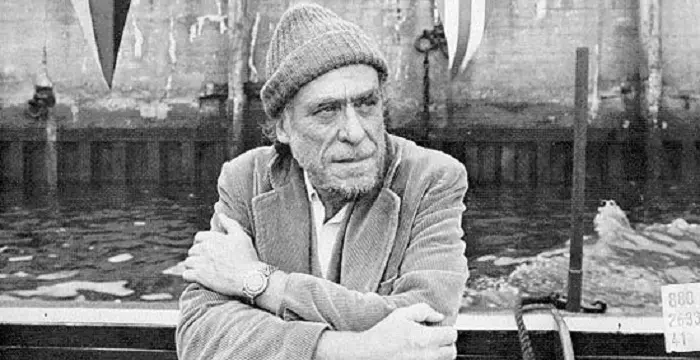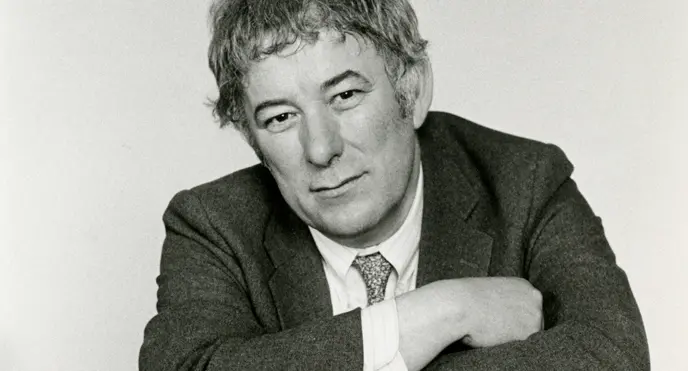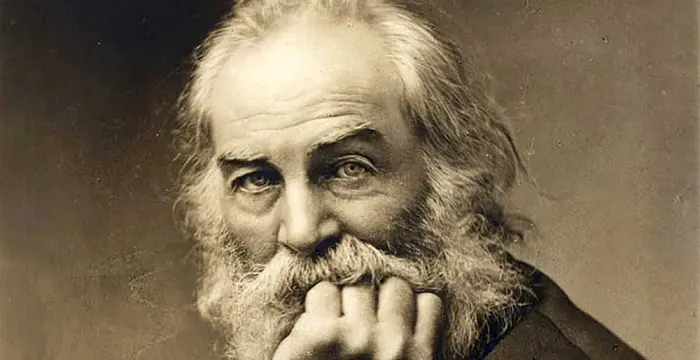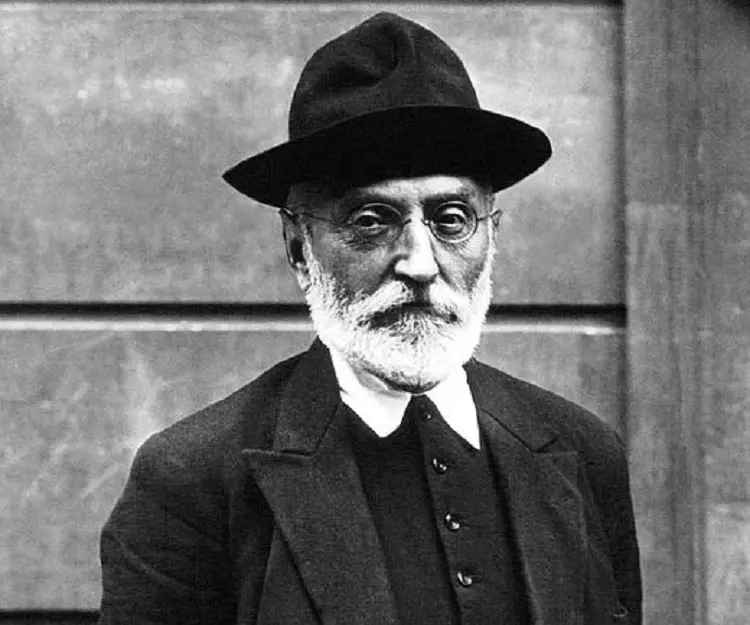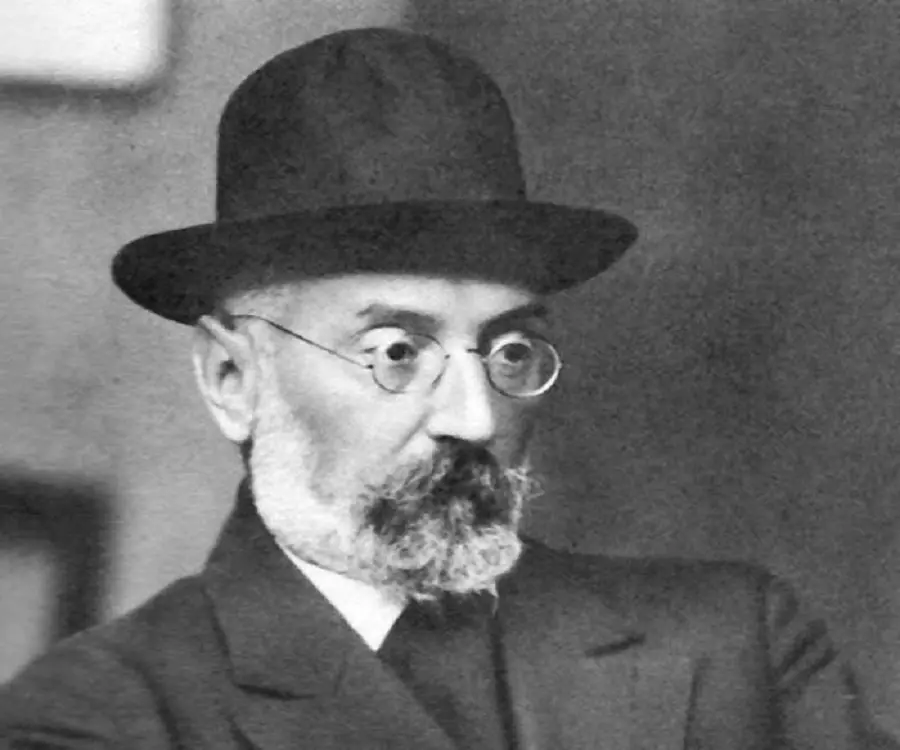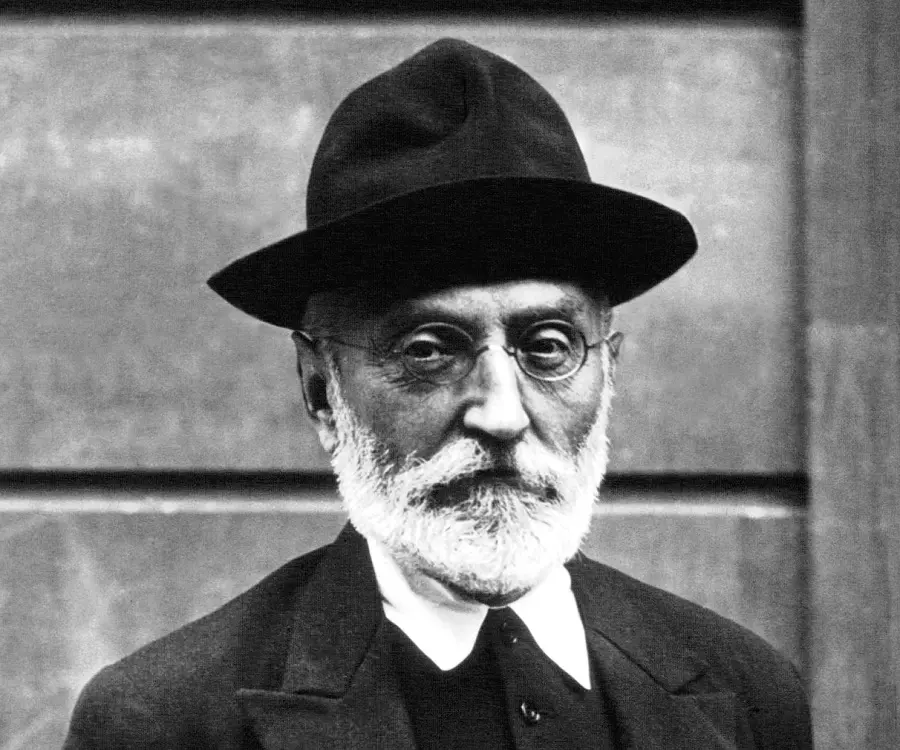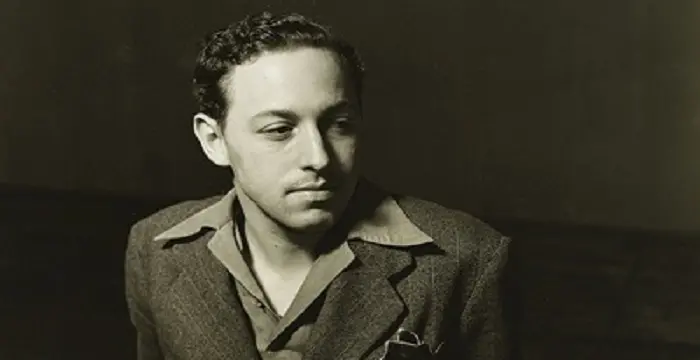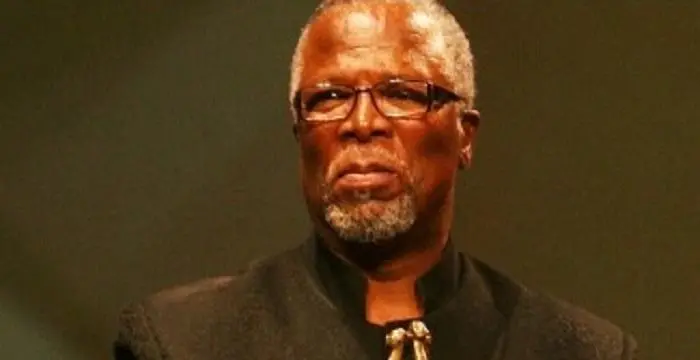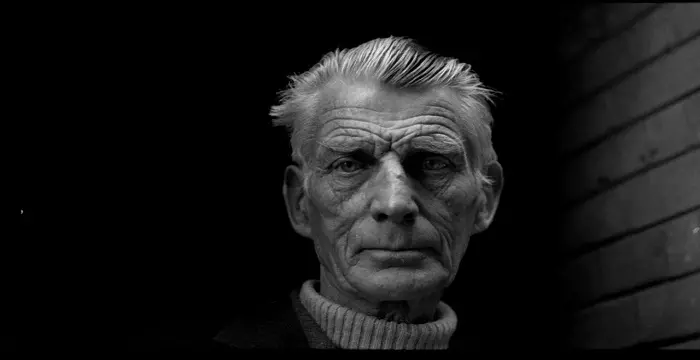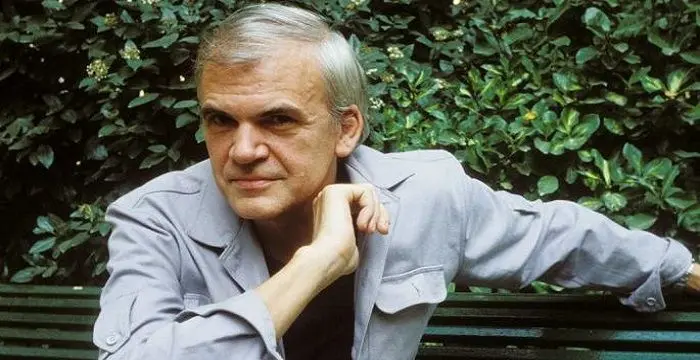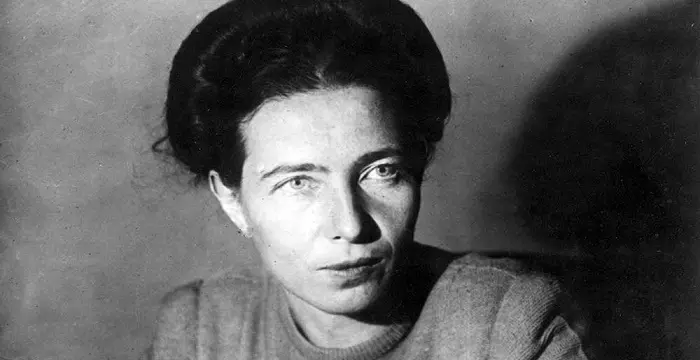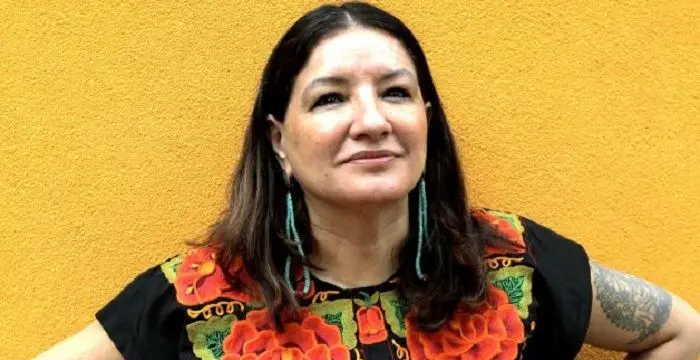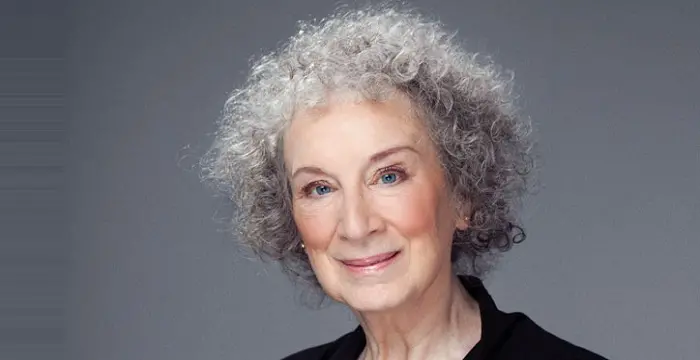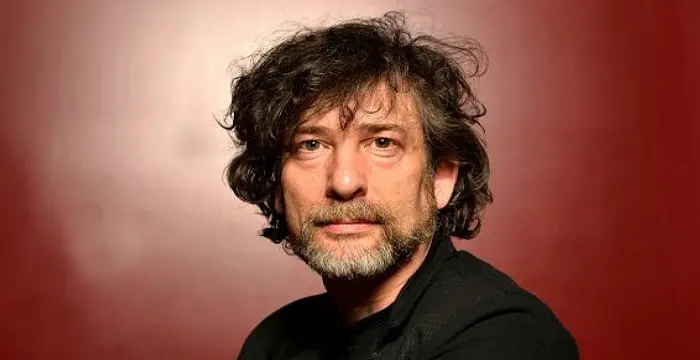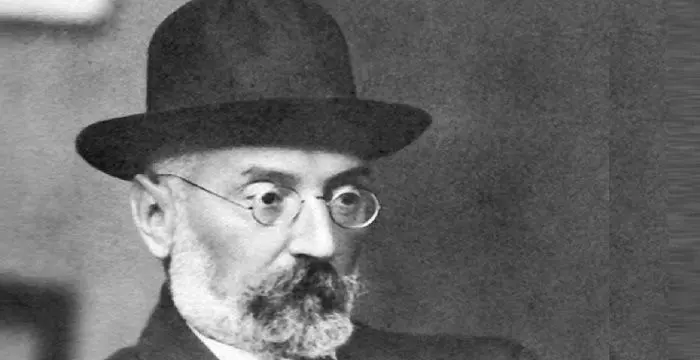
Miguel de Unamuno - Writers, Birthday and Childhood
Miguel de Unamuno's Personal Details
Miguel de Unamuno was a Spanish educator, philosopher, and author
| Information | Detail |
|---|---|
| Birthday | September 29, 1864 |
| Died on | December 31, 1936 |
| Nationality | Spanish |
| Famous | Intellectuals & Academics, Philosophers, Writers, Poets, Novelists, Playwrights |
| Spouses | Concepción Lizárraga Ecenarro |
| Siblings | Félix de Unamuno, María Felisa de Unamuno, María Jesusa de Unamuno, María Mercedes de Unamuno, Susana de Unamuno |
| Known as | Unamuno, Miguel de Unamuno Jugo, Don Miguel de Unamuno, Miguel de Unamuno y Jugo |
| Childrens | Felisa de Unamuno, Fernando de Unamuno, José de Unamuno, María de Unamuno, Pablo de Unamuno, Rafael de Unamuno, Raimundo de Unamuno, Ramón de Unamuno, Salomé de Unamuno |
| Universities |
|
| Birth Place | Bilbao |
| Religion | Agnosticism, Catholicism |
| Gender | Male |
| Father | Félix de Unamuno |
| Mother | Salomé Jugo |
| Sun Sign | Libra |
| Born in | Bilbao |
| Famous as | Writer |
| Died at Age | 72 |
// Famous Poets
Charles Bukowski
Charles Bukowski was a German-born American novelist, short story writer and poet. With this biography, learn in details about his childhood, life, works, career and timeline
Seamus Heaney
Nobel Laureate Seamus Heaney was an Irish poet, playwright and translator. Know about his profile, childhood, life and timeline in the biography below.
Walt Whitman
Walt Whitman was an American poet, journalist and humanist. Read this brief biography to find more on his life & timeline.
Miguel de Unamuno's photo
Who is Miguel de Unamuno?
Miguel de Unamuno was a Spanish educator, philosopher, and author best known for his novel ‘Abel Sánchez: The History of a Passion’, a modern exploration of the Cain and Abel story. A modernist, he worked in all major genres including essay, novel, poetry, and theater, and played a major role in dissolving the boundaries between genres. Born as the son of Basque parents, he grew up to be a creative and independent-minded young man. Having lost his father at a young age, he was primarily raised by his mother and grandmother who instilled in him a deep love for the Catholic religion. So devoted he was to his faith that he even considered becoming a priest. However, life had other plans for him and he eventually embarked on a career as an educator. He was also a prolific writer and played an important role in the intellectual life of Spain. He also served as rector of the University of Salamanca twice, but was removed from this position because of his opposition to the dictator General Miguel Primo de Rivera’s rule in Spain. An outspoken man, he once again found himself in trouble for speaking against General Francisco Franco’s Falangists following which he was placed under house arrest.
// Famous Playwrights
Tennessee Williams
Tennessee Williams was one of the greatest playwrights of the 20th century. This biography of Tennessee Williams provides detailed information about his childhood, life, achievements, works and timeline.
John Kani
John Kani is a South African actor, voice actor, playwright and director. Check out this biography to know about his birthday, childhood, family life, achievements and fun facts about him.
Samuel Beckett
Samuel Beckett was an Irish playwright, novelist, theatre director and poet. This biography profiles his childhood, life, works, achievements and timeline
Childhood & Early Life
Miguel de Unamuno y Jugo was born on 29 September 1864, in Bilbao, Biscay, Spain, as the son of Félix de Unamuno and Salomé Jugo. His parents were of Basque heritage.
His father died when Miguel was six, and he was raised by his mother and grandmother. Under their guidance he grew up to be a young man with a strong Catholic faith. He aspired to be a priest.
Unamuno entered the University of Madrid in 1880. There his interest shifted more towards intellectual pursuits rather than religious ones. He voraciously read books on philosophy, psychology and history, and by the age of 20 he had learnt 11 languages.
It is believed that he was acquainted with the "Generation of 1898", a literary group of Spanish intellectuals and philosophers dedicated to the renewal of Spain.
Career
Miguel de Unamuno returned to Bilbao in 1890 and embarked on a career as a tutor and essayist. Eventually he became a Greek professor. He was more interested in becoming a philosophy professor, but was unable to get an academic appointment as philosophy was somewhat politicized in Spain.
In 1895, he published his first work, a collection of essays, ‘En torno al casticismo’ (Around Reason), in which he critically examined Spain’s isolated and anachronistic position in Western Europe. One of the common themes of his works was of the struggle to preserve one’s personal integrity in the face of social conformity, fanaticism, and hypocrisy.
In 1900 he was made the rector of the University of Salamanca and served on this post for several years. He also wrote a lot over the ensuing years, publishing books like ‘Amor y pedagogía’ (Love and Pedagogy) (1902), ‘El espejo de la muerte’ (The Mirror of Death) (1913), ‘Niebla’ (Mist) (1914), ‘Vida de Don Quijote y Sancho’ (Our Lord Don Quixote) (1914), ‘Abel Sánchez’ (1917), ‘Tulio Montalbán’ (1920), ‘Tres novelas ejemplares y un prólogo’ (Three Exemplary Novels and a Prologue) (1920), ‘La tía Tula’ (Aunt Tula) (1921).
In 1924, General Miguel Primo de Rivera overthrew the parliamentary government in Spain and became a dictator. Independent-minded and outspoken, Unamuno published a series of essays critical of Rivera.
Rivera removed Miguel de Unamuno from his position as the rector and banished him to Fuerteventura, one of the Canary Islands. From there Unamuno escaped to France and established himself in Hendaye, a border town in the French Basque Country. His plan was to get as close to Spain as he could get while remaining in France.
The year 1930 saw the fall of General Miguel Primo de Rivera’s dictatorship following which Unamuno returned to Spain and once again became the rector of the University of Salamanca. It was a period of major political upheaval in Spain and the nation embarked on its Second Republic after the dictator’s fall. Unamuno became a candidate for the small intellectual party Agrupación al Servicio de la República. A moderate, he refused all political and anticlerical extremisms.
In the 1930s, General Francisco Franco’s Falangists revolted against Spanish monarchy, a move that Unamuno initially supported. However, when the movement became increasingly harsh, he began to oppose it. Unamuno publically denounced Franco in 1936 and was immediately removed from his position as a rector.
Major Works
His novel, ‘Abel Sánchez: The History of a Passion’ is a re-telling of the story of Cain and Abel set in modern times. The novel explores themes of envy between a man named Abel who is a famous and recognized painter, and another one named Joaquin who is a well-known doctor.
Another one of his famous works is ‘San Manuel Bueno, mártir’, a novella which focuses on the life of a parish priest in a small Spanish village. The work is believed to have synthesized virtually all of Unamuno's thought and is characterized by minimalism of action and of description.
Personal Life & Legacy
Miguel de Unamuno married his childhood sweetheart, Concepción Lizárraga in 1891. The couple went on to have ten children.
After being removed from his position of rector of the University of Salamanca by Franco, he was initially ordered to be executed. But the order was changed to have him placed under house arrest. He died of a heart attack on 31 December 1936.
// Famous Intellectuals & Academics
Bertil Gotthard Ohlin
Bertil Gotthard Ohlin was a famous Swedish economist. This biography profiles his childhood, family life & achievements.
Emily Greene Balch
Emily Greene Balch was an American economist, sociologist and pacifist who won the 1946 Nobel Peace Prize. This biography of Emily Greene Balch provides detailed information about her childhood, life, achievements, works & timeline.
Martin Buber
One of the greatest philosophers to have ever walked on earth, Martin Buber contributions to philosophy is a long-standing one. Explore all about his profile, childhood, life and timeline here.
Miguel de Unamuno biography timelines
- // 29th Sep 1864Miguel de Unamuno y Jugo was born on 29 September 1864, in Bilbao, Biscay, Spain, as the son of Félix de Unamuno and Salomé Jugo. His parents were of Basque heritage.
- // 1880Unamuno entered the University of Madrid in 1880. There his interest shifted more towards intellectual pursuits rather than religious ones. He voraciously read books on philosophy, psychology and history, and by the age of 20 he had learnt 11 languages.
- // 1890Miguel de Unamuno returned to Bilbao in 1890 and embarked on a career as a tutor and essayist. Eventually he became a Greek professor. He was more interested in becoming a philosophy professor, but was unable to get an academic appointment as philosophy was somewhat politicized in Spain.
- // 1891Miguel de Unamuno married his childhood sweetheart, Concepción Lizárraga in 1891. The couple went on to have ten children.
- // 1895In 1895, he published his first work, a collection of essays, ‘En torno al casticismo’ (Around Reason), in which he critically examined Spain’s isolated and anachronistic position in Western Europe. One of the common themes of his works was of the struggle to preserve one’s personal integrity in the face of social conformity, fanaticism, and hypocrisy.
- // 1898It is believed that he was acquainted with the "Generation of 1898", a literary group of Spanish intellectuals and philosophers dedicated to the renewal of Spain.
- // 1900In 1900 he was made the rector of the University of Salamanca and served on this post for several years. He also wrote a lot over the ensuing years, publishing books like ‘Amor y pedagogía’ (Love and Pedagogy) (1902), ‘El espejo de la muerte’ (The Mirror of Death) (1913), ‘Niebla’ (Mist) (1914), ‘Vida de Don Quijote y Sancho’ (Our Lord Don Quixote) (1914), ‘Abel Sánchez’ (1917), ‘Tulio Montalbán’ (1920), ‘Tres novelas ejemplares y un prólogo’ (Three Exemplary Novels and a Prologue) (1920), ‘La tía Tula’ (Aunt Tula) (1921).
- // 1924In 1924, General Miguel Primo de Rivera overthrew the parliamentary government in Spain and became a dictator. Independent-minded and outspoken, Unamuno published a series of essays critical of Rivera.
- // 1930The year 1930 saw the fall of General Miguel Primo de Rivera’s dictatorship following which Unamuno returned to Spain and once again became the rector of the University of Salamanca. It was a period of major political upheaval in Spain and the nation embarked on its Second Republic after the dictator’s fall. Unamuno became a candidate for the small intellectual party Agrupación al Servicio de la República. A moderate, he refused all political and anticlerical extremisms.
- // 1936In the 1930s, General Francisco Franco’s Falangists revolted against Spanish monarchy, a move that Unamuno initially supported. However, when the movement became increasingly harsh, he began to oppose it. Unamuno publically denounced Franco in 1936 and was immediately removed from his position as a rector.
- // 31st Dec 1936After being removed from his position of rector of the University of Salamanca by Franco, he was initially ordered to be executed. But the order was changed to have him placed under house arrest. He died of a heart attack on 31 December 1936.
// Famous Novelists
Charles Bukowski
Charles Bukowski was a German-born American novelist, short story writer and poet. With this biography, learn in details about his childhood, life, works, career and timeline
Milan Kundera
Milan Kundera is a Czech-born French writer known for his erotic and political writings. This biography of Milan Kundera provides detailed information about his childhood, life, achievements, works & timeline.
Simone de Beauvoir
Simone de Beauvoir was an eminent French writer, intellectual, activist, and philosopher. This biography profiles her childhood, life, thoughts, achievements and timeline.
Sandra Cisneros
Sandra Cisneros is an American writer known for audaciously penning the realities and expectations from females in US and Mexico. This biography provides detailed information about her childhood, life, achievements, works & timeline
Margaret Atwood
Margaret Atwood is a Canadian writer, best known for her novels, short stories and poems. This biography of Margaret Atwood provides detailed information about her childhood, life, achievements, works & timeline.
Neil Gaiman
Neil Gaiman is an English writer of novels, short stories, children’s books and other literature. This biography provides detailed information about his childhood, life, achievements, works & timeline.
Miguel de Unamuno's FAQ
What is Miguel de Unamuno birthday?
Miguel de Unamuno was born at 1864-09-29
When was Miguel de Unamuno died?
Miguel de Unamuno was died at 1936-12-31
Where was Miguel de Unamuno died?
Miguel de Unamuno was died in Salamanca
Which age was Miguel de Unamuno died?
Miguel de Unamuno was died at age 72
Where is Miguel de Unamuno's birth place?
Miguel de Unamuno was born in Bilbao
What is Miguel de Unamuno nationalities?
Miguel de Unamuno's nationalities is Spanish
Who is Miguel de Unamuno spouses?
Miguel de Unamuno's spouses is Concepción Lizárraga Ecenarro
Who is Miguel de Unamuno siblings?
Miguel de Unamuno's siblings is Félix de Unamuno, María Felisa de Unamuno, María Jesusa de Unamuno, María Mercedes de Unamuno, Susana de Unamuno
Who is Miguel de Unamuno childrens?
Miguel de Unamuno's childrens is Felisa de Unamuno, Fernando de Unamuno, José de Unamuno, María de Unamuno, Pablo de Unamuno, Rafael de Unamuno, Raimundo de Unamuno, Ramón de Unamuno, Salomé de Unamuno
What was Miguel de Unamuno universities?
Miguel de Unamuno studied at 1883-06-21 - Complutense University of Madrid, 1884-06-20 - Complutense University of Madrid
What is Miguel de Unamuno's religion?
Miguel de Unamuno's religion is Agnosticism, Catholicism
Who is Miguel de Unamuno's father?
Miguel de Unamuno's father is Félix de Unamuno
Who is Miguel de Unamuno's mother?
Miguel de Unamuno's mother is Salomé Jugo
What is Miguel de Unamuno's sun sign?
Miguel de Unamuno is Libra
How famous is Miguel de Unamuno?
Miguel de Unamuno is famouse as Writer
